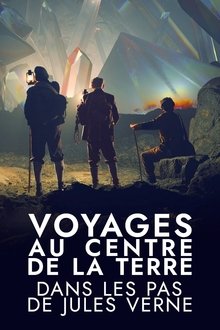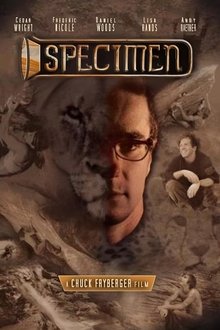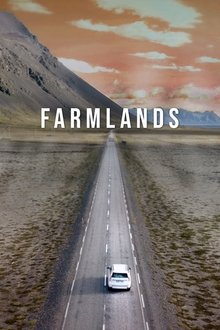In a remote stretch of Patagonia, Argentina, there is a family - the Dickasons - who speak a language from a country 7,000km to the east. They are part of a 114-year-old Afrikaans Boer community - South Africans of Dutch descent who sailed across the ocean to South America after the destruction of a war with the British. Today, less than 50 still speak the language and they struggle to keep their culture alive. Patriarch "Ty" Dickason, 82, is a cowboy who has never flown in a plane - and yet he yearns to one day visit the country of his blood before he and his compatriots pass away. This multiple SAFTA award-winning documentary is a portrait of the last days of the community - a parallel world where Afrikaans was never linked to Apartheid - and one family's journey to reconnect with South Africa.
Related Movies

2 or 3 Things I Know About Him (2005)
What would your family reminiscences about dad sound like if he had been an early supporter of Hitler’s, a leader of the notorious SA and the Third Reich’s minister in charge of Slovakia, including its Final Solution? Executed as a war criminal in 1947, Hanns Ludin left behind a grieving widow and six young children, the youngest of whom became a filmmaker. It's a fascinating, maddening, sometimes even humorous look at what the director calls "a typical German story." (Film Forum)
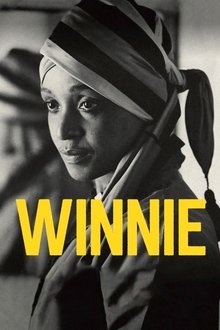
Winnie (2017)
While her husband served a life sentence, paradoxically kept safe and morally uncontaminated, Winnie Mandela rode the raw violence of apartheid, fighting on the front line and underground. This is the untold story of the mysterious forces that combined to take her down, labeling him a saint, her, a sinner.

Street Monkeys (2009)
Breaking and entering, gang fights-it's not the lifestyle you would imagine inside the posh Mount Edgecombe Estate in Durban, South Africa. But for our primate cousins, the vervet monkey, just trying to protect their turf is all in a day's work. This group of mischievous vervet monkeys bring action and drama to every street corner. Over the course of a year, two rival gangs, the Pani Troop and the Sugar Cane Gang, will vie for prime real estate. See who will win.
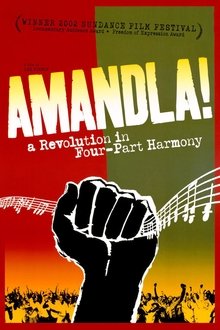
Amandla! A Revolution in Four-Part Harmony (2002)
The struggle to eradicate apartheid in South Africa has been chronicled over time, but no one has addressed the vital role music plays in this challenge. This documentary by Lee Hirsch recounts a fascinating and little-known part of South Africa's political history through archival footage, interviews and, of course, several mesmerizing musical performances.
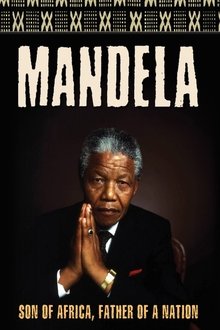
Mandela (1996)
A documentary that chronicles the life of South African leader Nelson Mandela. Mandela is probably best known for his 27 years of imprisonment, and for bringing an end to apartheid. But this film also sheds light on the little-known early period of Mandela's life.
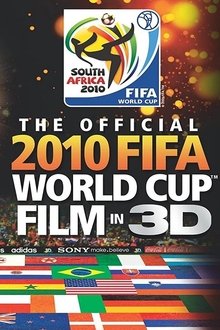
The Official 2010 FIFA World Cup Film in 3D (2010)
Experience the journey of the most-watched sporting event in the world as it was meant to be seen: in dynamic and vibrant 3D on Blu-ray. Relive the action and intensity of the 2010 FIFA World Cup South Africa as though you were actually in the stadium witnessing all the drama and athletic skill. The greatest players in the world--supported by the most passionate fans--met up on the biggest stage in sports and made history as the 2010 FIFA World Cup enthralled South Africa and the world.
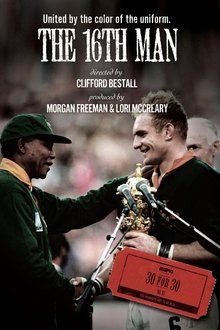
The 16th Man (2010)
Rugby Union has long been viewed in South Africa as a game for the white population, and the country’s success in the sport has been a true source of Afrikaner pride. When the 50-year-old policies and entrenched injustices of apartheid were finally overthrown in 1994, Nelson Mandela’s new government began rebuilding a nation badly in need of racial unity. So the world was watching when South Africa played host to the 1995 Rugby World Cup. Though they had only one non-white player, the South African Springboks gained supporters of all colors as they made an improbable run into the final match where they beat the heavily favored New Zealand team. When Mandela himself marched to the center of the pitch cloaked in a Springbok jersey and shook hands with the captain of the South African team, two nations became one. Oscar winner Morgan Freeman and director Cliff Bestall will tell the emotional story of that cornerstone moment and what it meant to South Africa’s healing process.
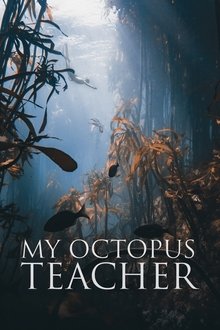
My Octopus Teacher (2020)
After years of swimming every day in the freezing ocean at the tip of Africa, Craig Foster meets an unlikely teacher: a young octopus who displays remarkable curiosity. Visiting her den and tracking her movements for months on end he eventually wins the animal’s trust and they develop a never-before-seen bond between human and wild animal.
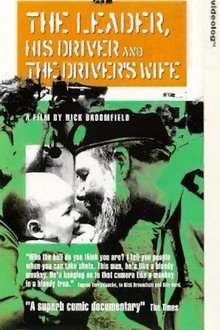
The Leader, His Driver, and the Driver's Wife (1991)
From award-winning director Nick Broomfield, The Leader, His Driver, and the Driver's Wife documents Broomfield's efforts to interview Eugene Terre'Blanche, leader of the sinister neo-nazi AWB Afrikaner Party in South Africa. Cameras capture awkward interactions with skittish AWB supporters, combat training of militant youth, and the coveted interview itself. Broomfield's access to these events is made possible by the leader's driver, whose wavering allegiance to the movement is explored as well.
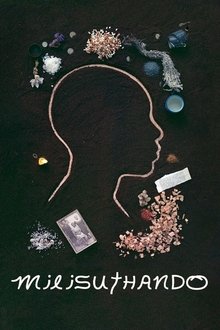
Milisuthando (2024)
Set in past, present, and future South Africa — an invitation into a poetic, memory-driven exploration of love, intimacy, race, and belonging by the filmmaker, who grew up during apartheid but didn't know it was happening until it was over.
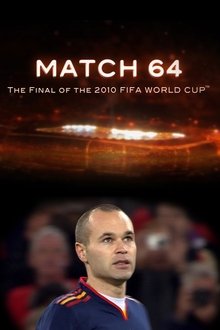
Match 64: The Final of the 2010 FIFA World Cup (2011)
Go behind the scenes and get closer to the 2010 FIFA World Cup Final than ever before in 'Match 64', a documentary that features exclusive interviews, footage and access to the battle between Spain and the Netherlands.

Plaasmoorde: The Killing Fields (2018)
Included in this groundbreaking work are interviews with active farm attackers and serving police officers who confirm corrupt police are complicit in the mass‐slaughter of South Africa’s whites. Their truths are horrifying—a man and woman branded with hot irons and left to die. A husband killed in front of his wife and children. An elderly woman raped, another with half her face blown off from a shotgun. And they all share a common thread: revenge. This is a disturbing documentary—it wrought both an emotional and physical toll on all involved. What’s more, Katie was detained at the airport in South Africa on the orders of the African National Congress (ANC) for her work on this project because Plaasmoorde is the story—the truth—they don’t want you to see. We owe it to the victims—to our fellow man—to listen and to open our eyes to the truth.
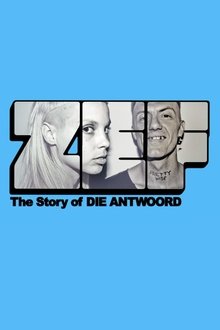
ZEF - The Story of Die Antwoord (2024)
South African producer / director JON DAY spent the last 5 years making a documentary about the mysterious rap-rave group, DIE ANTWOORD. Art directed by surrealist photographer, ROGER BALLEN. Narrated by NINJA & ¥O-LANDI'S daughter, 16 JONES.

Winnie and Nelson: Portrait of a Marriage (NaN)
Explores the deep bond between Nelson and Winnie and their marriage in the struggle against apartheid. An intimate portrait of their connection from the early years through to the dismantling of apartheid and Mandela's historic presidency.

Troublemaker: The Story Behind the Mandela Tapes (NaN)
Newly discovered audio interviews with Nelson Mandela himself delivers an honest, accurate and definitive depiction of the man who remains a global symbol of justice, hope and universal human dignity.
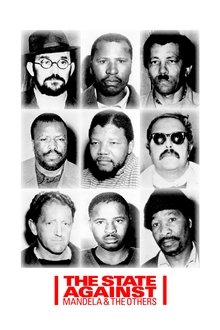
The State Against Mandela and the Others (2018)
South Africa, July 11th, 1963. Several members of the African National Congress, an organization declared illegal, are arrested in Rivonia, a country house near Johannesburg. The detainees, along with Nelson Mandela, imprisoned since 1962, are charged with serious crimes for their radical activism against the apartheid regime.
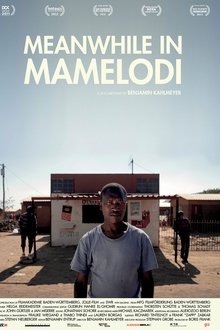
Meanwhile in Mamelodi (2011)
Set against the raucous backdrop of the 2010 World Cup, MEANWHILE IN MAMELODI is a beautifully crafted portrait of a place and one family’s daily life inside it. The Mtsweni family lives in the Pretoria Township of the title, in the district known as Extension 11. Their world is a ramshackle collection of corrugated tin dwellings and makeshift shops, open sewers littered with debris and red-earth rectangles filled with soccer-playing children and teens. Seventeen-year-old Mosquito is one of those kids. As she studies for math tests, flirts with boys and shops with her best friend, her father Steven prepares his "tuck shop" for the promise of cash-flush tourists. Meanwhile, his wife struggles with mental illness. The Mtswenis' lives unfold as the Cup brings new hope to the ravaged town. Despite the poverty around her, Mosquito insists this is not her parents' country. She is the face of South Africa's future - part of "a new generation free to do all things."
